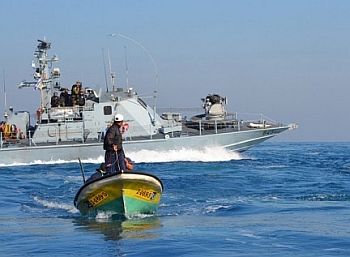Tag: Fishermen
-
Demonstration in solidarity with Gaza fishermen on Wednesday, 5 December 2012 at Gaza port
4 December 2012 | Palestinian Centre for Human Rights A demonstration in solidarity with Gaza Fishermen is planned for Wednesday, 5 December 2012, to be held at Gaza Port at 10am. In the period between Wednesday, 28 November, and Saturday, 1 December, at least 29 fishermen have been arrested, at least 9 fishing boats have…
-
In new violation of ceasefire agreement, Israeli forces arrest 14 fishermen and confiscate 3 fishing boats: number of arrested fishermen increases to 29 and confiscated boats to 9
2nd December 2012 | Palestinian Centre for Human Rights The Palestinian Centre for Human Rights (PCHR) repeats its condemnation of Israel’s violations against Palestinian fishermen in the Gaza Strip. PCHR is concerned over the escalation of Israeli attacks directed against fishermen since the Israeli offensive on the Gaza Strip that was stopped following the cease-fire…
-
Ceasefire re-awakens dreams of Gaza fishermen
27 November 2012 | International Solidarity Movement, Gaza Strip Fishermen in Gaza are able to fish six miles from the shore for the first time since 2006 after the ceasefire between Israel and Gaza. Fishermen hope the fishing industry will recover after its almost complete destruction by the siege but say that 6 miles is…

